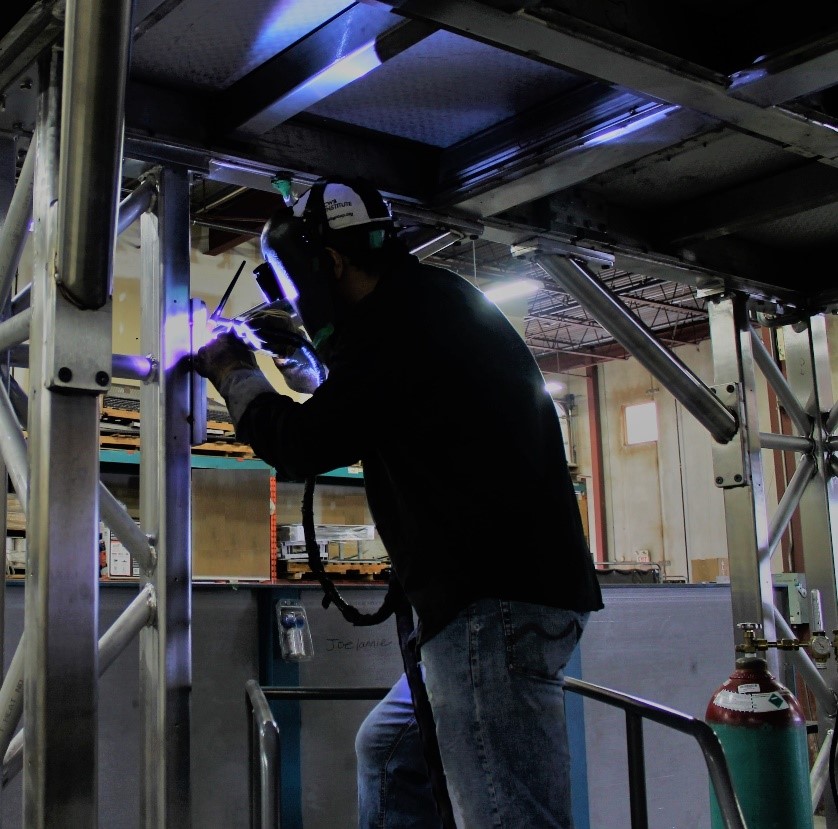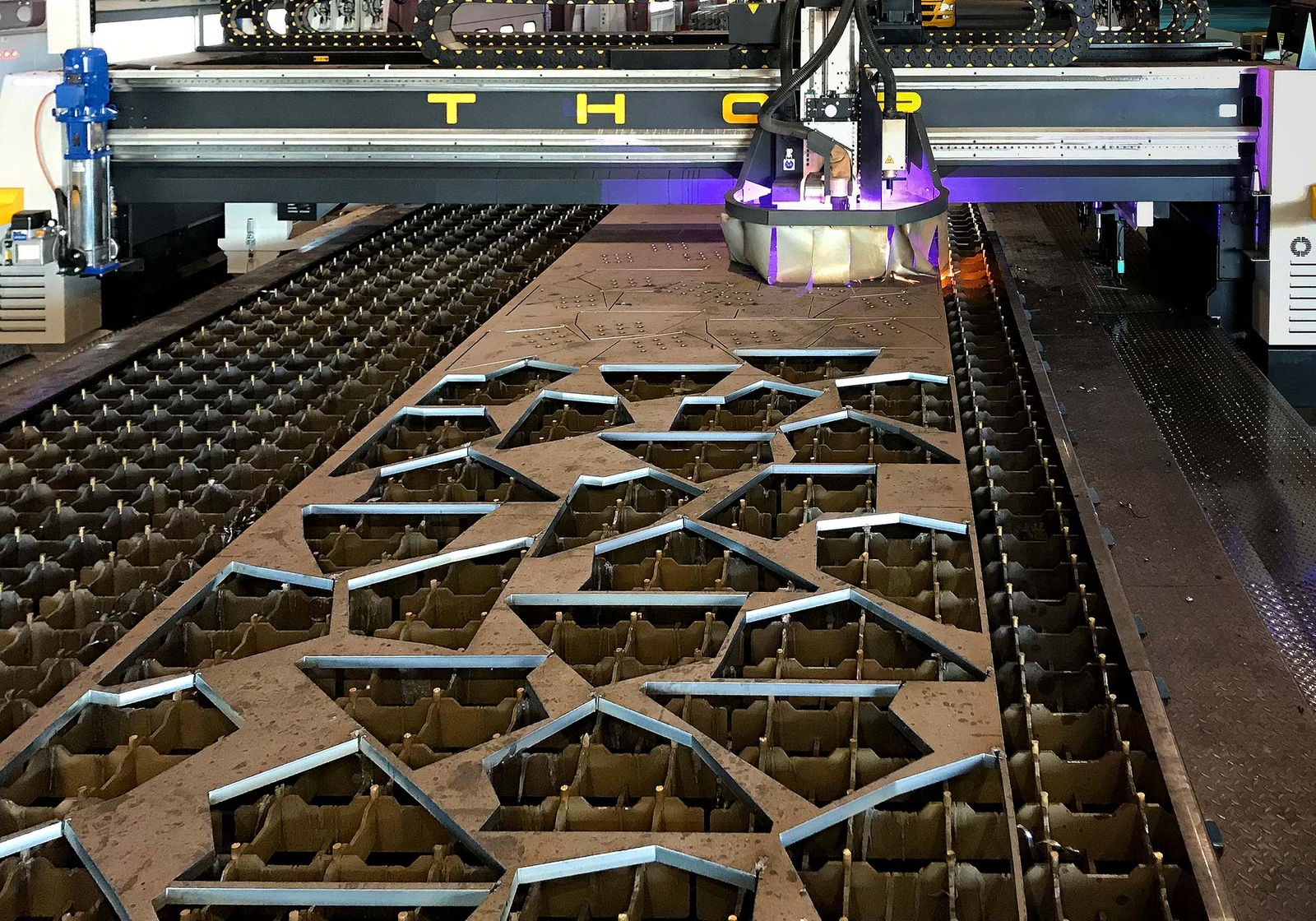The Ultimate Manual on Custom Steel Manufacture Solutions for Structural Projects
In the realm of structural tasks, the importance of custom steel construction services can not be overstated. From the foundational understanding of steel manufacture fundamentals to the intricate procedure of choosing the most ideal products, every step in this journey plays an essential function in the utmost success of a job. As we navigate through the intricacies of layout factors to consider, construction processes, and quality assurance actions, a detailed manual offers as a directing light for specialists seeking quality in steel manufacture solutions. Stay tuned to discover the insights that can reinvent the means structural jobs are come close to and carried out.
Recognizing Custom-made Steel Manufacture Basics
Exploring the basics of custom-made steel construction gives understanding right into the complex process of changing raw steel into tailored structural components. Custom-made steel construction is a customized production method that entails cutting, shaping, and putting together steel materials to develop special frameworks according to details job demands. Recognizing the essentials of custom steel construction is crucial for guaranteeing the effective execution of architectural jobs.
The procedure usually starts with the evaluation of job requirements and design demands. This preliminary stage entails detailed planning and cooperation between makers, developers, and designers to establish one of the most appropriate approach for fabricating the steel components. Accuracy is crucial throughout the manufacture process, as even small inconsistencies can impact the structural integrity of the end product.
Numerous methods, such as reducing, welding, and shaping, are used to transform raw steel right into the preferred structural components. Proficient producers use advanced equipment and tools to make sure accuracy and uniformity throughout the fabrication process. Quality assurance steps are carried out to validate the honesty of the made components before they are put together on-site, guaranteeing conformity with market standards and job specs.
Picking the Right Steel Products

First and foremost, the sort of architectural task and its specific demands play a vital duty in establishing one of the most suitable steel materials. Aspects such as the load-bearing capacity, environmental conditions, and preferred life expectancy of the framework will certainly determine the quality and type of steel that ought to be used.
Moreover, the physical residential properties of the steel, including weldability, strength, and ductility, have to line up with the project's requirements to guarantee optimum efficiency and durability (Alpha reo). In addition, factors to consider such as deterioration resistance, cost-effectiveness, and accessibility of the steel products must also be considered throughout the selection procedure
Design Considerations for Architectural Tasks
Architectural projects necessitate meticulous attention to develop factors to consider to ensure both capability and security are focused on throughout the building procedure. When it comes to making structural projects, numerous essential elements should be taken into account to ensure the success of the endeavor. By carefully thinking about these elements during the design stage, architects and engineers can ensure the structural job's success from conception to completion.
Streamlining Fabrication Procedures for Effectiveness

Additionally, carrying out lean production principles can significantly boost performance in steel construction. By reducing waste, maximizing process, and enhancing interaction between various groups associated with the manufacture procedure, projects can be completed a lot i loved this more swiftly and with higher high quality requirements.
Additionally, developing a well-organized Check This Out manufacturing routine and workflow can help in prioritizing tasks, assigning sources successfully, and conference task target dates quickly. By having a clear strategy in position and on a regular basis checking progress, any possible bottlenecks or hold-ups can be identified and attended to without delay, ensuring efficient and smooth manufacture processes for structural jobs.
Quality Assurance and Job Monitoring in Steel Construction
To ensure the effective implementation of steel construction jobs, careful quality control steps and effective job monitoring practices are vital components in preserving accuracy and conference customer assumptions. Quality control in steel manufacture entails strenuous assessments at different phases of the construction process to validate compliance with task requirements and sector requirements. This consists of material screening, dimensional checks, and weld evaluations to guarantee structural honesty and safety and security.
Project management plays an important role in coordinating the different elements of steel construction jobs, such as organizing, source allowance, and interaction among employee. A distinct task strategy with clear objectives, turning points, and timelines aids to keep an eye on progression and attend to any possible issues proactively. Efficient interaction between all stakeholders, including clients, service providers, designers, and makers, is essential for guaranteeing that the job proceeds smoothly and fulfills the preferred top quality standards.
Final Thought
In conclusion, custom steel fabrication plays a crucial duty in architectural tasks by giving customized services making use of the ideal materials and layout considerations. Efficiency in manufacture procedures, quality control, and efficient job management are essential for successful end results. By understanding the essentials of customized steel fabrication and applying structured processes, task groups can deliver premium and resilient frameworks that satisfy the particular needs of their customers.
Custom-made steel manufacture is a specific manufacturing strategy that involves cutting, shaping, and setting up steel materials to produce unique frameworks according to certain task needs.To ensure the effective execution of steel manufacture projects, precise high quality control measures and reliable task management practices are important directory elements in keeping precision and conference client assumptions. Quality control in steel fabrication entails extensive assessments at various phases of the construction procedure to validate compliance with job requirements and market standards (Alpha reo).Task management plays a crucial duty in collaborating the numerous facets of steel fabrication jobs, such as scheduling, resource allowance, and communication amongst group members.In final thought, custom steel fabrication plays an important role in structural projects by offering customized solutions making use of the ideal materials and style considerations